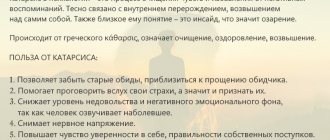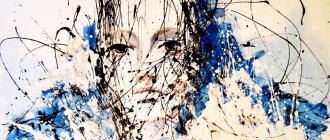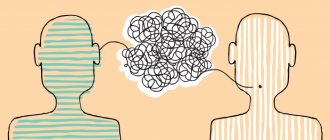What is erudition?
Erudition (from the Latin ēruditio - learning, enlightenment) - comprehensive education, broad knowledge in many areas.
This term refers to the ability of the human mind to absorb and retain in memory a large amount of information and knowledge in a variety of areas.
Erudition as a personality quality is a unique ability to demonstrate information awareness, erudition, informativeness, orderliness and structure in a wide range of knowledge and deep knowledge in the field of one’s life activity, resulting from education, systematic study and comprehension of various literary and information sources.
Erroneous interpretation of erudition
Many people confuse the concept of erudition and wisdom. But these are completely different definitions. An erudite person, not always wise and “enlightened.” Erudition is nothing more than a simply structured, ordered set of knowledge. Erudition is characteristic of people with a good memory and curiosity.
However, simply reading or hearing information and remembering it is not enough to become an erudite person. It is necessary to consciously “digest” this knowledge, subject it to criticism, compare it with other sources, test it in practice, making sure of its truth. And only then apply it in your life and pass it on to others. To use information in this way requires a high degree of intelligence.
This is also interesting:
What happens to your body if you suddenly stop drinking coffee?
What do you mean by broadening your horizons?
It means curiosity and the realization of the natural need to understand the world around us. Literally, horizon means increasing visibility. The deeper a person understands the essence of things and phenomena, the better he thinks logically. If you have a diploma with a technical specialty, no one forbids you to study the humanities or natural sciences and vice versa. If you consider yourself a professional, constantly develop yourself and apply theoretical experience in practice.
Why try?
Being erudite is useful for rational reasons. Standardized education in educational institutions, watching trendy films, imposing social attitudes forms a similar worldview in people and limits the mind. A broad outlook develops unconventional thinking, helps to build logical chains and calculate events. This saves you from the troubles that often happen to short-sighted people.
Learning is a catalyst for positive changes in life. A person who has a personal point of view always wins and never loses professional significance.
In the 21st century, a new value system is a priority. People strive not so much for enrichment as for original ideas. They are born exceptional in erudite heads. Intellectuals have every chance of success. Smart people, geeks, and nerds become leaders of successful businesses.
Who are modern scholars?
These are people who have deep knowledge in at least 3 different areas and possess professional skills. Many combine knowledge and generate breakthrough ideas. This is proven by outstanding personalities: Aristotle, Huygens, Benjamin Franklin, Thomas Edison, who went down in history, and their erudite contemporaries. Everyone knows the names of Elon Musk, Steve Jobs, Mark Zuckerberg, Larry Page, Jeff Bezos.
For example, before Edward Wilson, biology and sociology were studied separately until he created sociobiology. Jobs integrated programming with design and introduced the MacBook. Musk, thanks to his knowledge of physics, programming, and economics, has organized billion-dollar companies and is successfully exploring space.
The combination of skills will make you a professional in a narrow field. Scott Adams, the creator of the Dilbert comic strip, was not always a comedian and animator. At the time of creating the office sketches, he was over twenty. He combined humor, the ability to draw, and a critical view of business culture - and became successful in his field. The guy believes that the achievements and combination of different skills work wonders: “My experience allows me to display themes that other illustrators cannot reproduce.”
To solve personal and general problems, knowledge in one area is not enough. For example, take obesity, which often leads to death. Nutritionists advise eating less and moving more. This is true, but not the whole truth. Scott Page in his book Diversity Bonus showed that the problem requires an integrated approach: knowledge from physiology, genetics, psychology, and other related fields. There is only one conclusion: develop in different directions, train in the ability to combine skills for career and creative breakthroughs.
Who is an erudite person
Let's consider the main question - what is an erudite person? Smart, developed, well-read, educated?
Erudition definitely has something to do with being an educated person. However, this is not the same thing, contrary to the prevailing opinion among society. An erudite person is necessarily educated, but an educated person is not always an erudite.
The main difference is that not all educated people strive to expand and supplement their knowledge, or test it through their own experience. Many blindly take on faith what they were taught in schools, institutes and other educational institutions, and never question this knowledge.
And a truly erudite person always strives to overcome his ignorance and replenish himself with new knowledge. He explores topics and areas of life that interest him, drawing knowledge from all kinds of sources. Any information is subject to analysis and criticism. If an erudite questions some fact or received information, he will definitely research and check them in order to come to his own conclusion. Also, erudites are able to consider certain knowledge, fact, situation from different points of view, without considering any of them to be the only correct one.
Such a person has deeper knowledge in some areas (science, philosophy, history, medicine) than just a good specialist or holder of a higher education.
The difference between an erudite and an educated person
The concepts of an educated person and a polymath are not synonymous. An erudite is always an educated person, while it is incorrect to say the opposite. An erudite always strives to deepen his education, while a simply educated individual does not see any special dignity in this.
The one who is called the “fount of knowledge” draws information not only from textbooks, he finds additional literature and critically studies it. Among scientists, erudites are called, for example, physicists and mathematicians, who are very knowledgeable people in matters of biology.
Advantages of an erudite person
Without a doubt, developed erudition is an advantage. Let’s look at exactly what advantages such an interesting personality trait provides in life:
- An erudite person feels comfortable in any company. He can support almost any conversation, surprise others with his knowledge, and tell people interesting information.
- He has a better chance of getting a well-paid job and moving up the career ladder.
- If necessary, scholars can easily learn a new profession and change their work activity.
- They are attracted to erudites; many of them have a penchant for leadership and managerial qualities.
- A person has the ability to handle large amounts of information.
- Such people have a higher level of cognitive abilities and a reduced risk of developing senile dementia and Alzheimer's disease.
- An erudite person arouses increased interest from other people and enjoys success with the opposite sex.
- It is easier for erudite people to make new acquaintances and business connections.
- Erudites are more trusted, especially in professional circles.
- Erudite people are more confident and have high self-esteem, which allows them to achieve success in life.
- Smart and developed children grow up in a family of erudites, as their parents pass on their extensive knowledge to them and easily answer any questions.
As you can see, erudition has many advantages, and these are factors that many people should strive for.
Interesting facts about our memory abilities:
Fact 1
Memory and its properties directly depend on a person’s profession. It really is better among announcers, teachers, scientists, and actors. After all, these people have to memorize a large amount of text, constantly repeat it and learn something new.
Fact 2
In fact, a person remembers not what happened to him in objective reality, but his subjective assessments - negative or positive impressions, which can be influenced by any little thing. For example, the whole day could go like a fairy tale, and at the end an event happened that spoiled the mood. Rest assured, a person will remember exactly this, painting his whole day in black colors
Fact 3
There are two types of memory - short-term, or operational, and long-term. During a session, students manage to “push” a huge amount of information into their memory overnight, which disappears immediately after the exam. Patients with so-called senile forgetfulness remember in great detail events that happened in early childhood or many years ago, but are unable to retain in their heads what happened half an hour ago.
Amateurism and mosaic culture
To properly understand what an erudite is, it would be advisable to familiarize yourself with these two concepts.
The first of them is considered both as the opposite of erudition and as its feature. When amateurism acts as an antonym to erudition, they say that the amateur knows everything and knows nothing. When they talk about peculiarities, they explain that an erudite knows everything about an insignificant subject, while a layman knows nothing about everything. The essence of the last expression can be stated in the form: “There are people who are widely erudite, and there are others who are deeply erudite.”
As for the expression “mosaic culture,” it describes a sociocultural situation, which is characterized by the fact that most subjects chaotically perceive scattered information. It does not have time to be processed and is not organized in their minds into ordered structures. Of course, a person who has a lot of fragmentary knowledge cannot be considered an erudite.
How to become an erudite person on your own
Is it possible to develop erudition on your own? This survey is of interest to many who want to engage in self-development. Experts in the field of psychology and personal growth say that this is quite possible. Human abilities are unlimited and everyone can “pump” themselves to any desired level.
The concept of what an erudite person should know is very subjective. This can be knowledge in a specific area, but covering it as much as possible, or in different areas. The main thing is that it is interesting to the owner of the information.
So, tips on how to develop erudition yourself:
- Read more books. These should not be romance novels and detective stories, but popular science literature, books from the field of philosophy, self-knowledge, and history. Educational textbooks are also excellent sources of useful information.
- Don't blindly believe everything that comes into your mind. Subject information to doubt, criticism and analysis. This is the only way you can be convinced of the reliability of certain knowledge.
- Cultivate your curiosity. Be interested in the new and unknown. The wider your range of interests, the more interesting you are.
- Choose your environment. It’s not for nothing that there is a saying “whoever you mess with...”. More often be in the company of erudite, educated, successful, wise people who have something to learn from.
- Attend educational and cultural events. Go to exhibitions, museums, theaters, classical music concerts, scientific conferences.
- Watch science documentaries.
- If you are passionate about a topic, area, subject, study it in all its depth and breadth, and not just superficially.
- Travel, get acquainted with the culture of other countries.
- Enrich your speech, learn new terms and words.
- Don’t just learn and memorize information, but reflect on it, form your own vision and point of view.
- Avoid destructive, useless information that flows today in huge quantities from everywhere and fills people’s heads (yellow press, negative news, advertising, propaganda of certain images and forms of behavior).
- Develop your intellectual abilities: learn foreign languages, learn to play chess, learn poetry, solve crossword puzzles.
- Make friends with similar interests and communicate, exchange information.
This is also interesting:
The danger of self-development or what they are silent about during trainings
Dictionary interpretation
In the dictionary we read the following about what an erudite is:
This is a person who has extensive and deep knowledge. Example: “Alexander Petrovich Semenov was an ordinary labor protection engineer, but friends and acquaintances knew him as a rare erudite, whose range of knowledge went very far beyond the scope of his profession.”
The second interpretation of the word being studied is a board game, which is also called “Scrabble”. The name comes from the English word Scrabble, meaning “to rummage around for something.” In it, the players, who can be from two to four people, use a board divided into 225 squares. They compete to form words using lettered wooden tiles. Example: “In the Russian-speaking environment, such names for the game “Scrabble” are used as “Scrabble”, “Slovodel”, and for the first time in Russian it was described in 1968 in the magazine “Science and Life” No. 7, where it was called “Crossword” .











